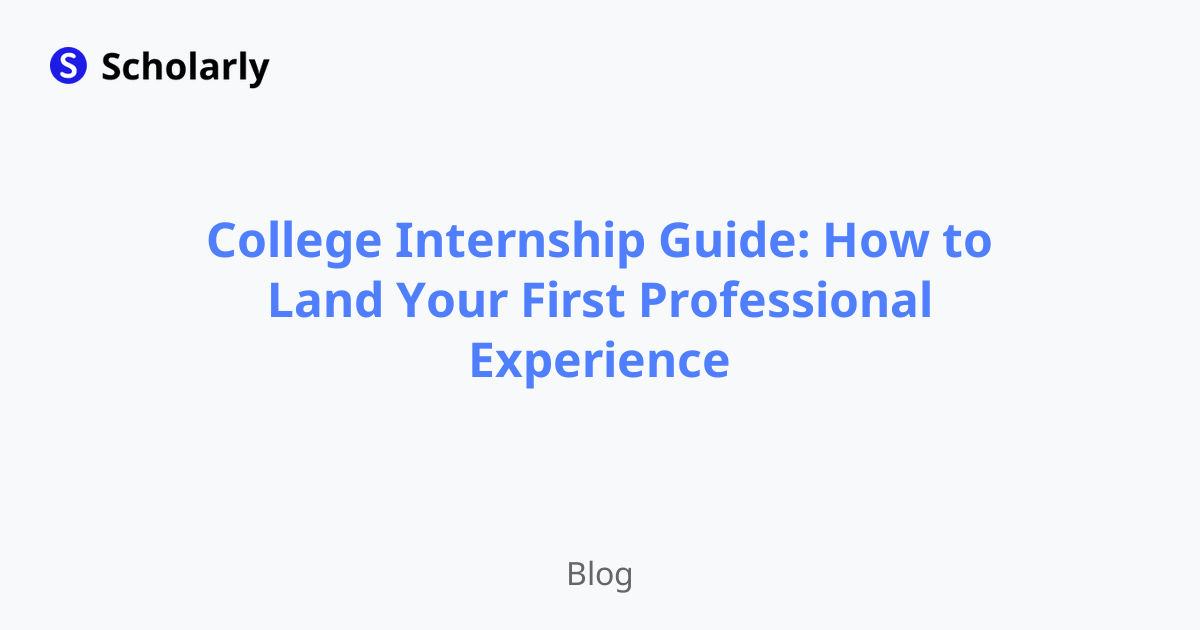College Internship Guide: How to Land Your First Professional Experience
Master the internship search process from application to offer. Learn insider strategies for standing out, networking effectively, and securing valuable professional experience.

Introduction
Internships have become essential stepping stones to full-time employment, with 91% of employers preferring candidates with work experience and 60% of internships leading to full-time job offers. However, competition is fierce, with some prestigious programs receiving thousands of applications for just a few spots. This comprehensive guide provides a strategic approach to securing internships, from identifying opportunities and crafting compelling applications to excelling during your internship and converting it into future career opportunities.
Methods
1. Strategic Opportunity Identification
Timeline Planning:
- Start searching 6-12 months before desired start date
- Apply to summer internships by January-February
- Consider fall/spring internships for less competition
Platform Utilization:
- Handshake for college-specific opportunities
- LinkedIn for professional networking and job alerts
- Company websites for direct applications
- Industry-specific job boards and associations
2. Application Optimization
Resume Enhancement:
- Quantify achievements with specific numbers and results
- Highlight relevant coursework, projects, and leadership
- Use action verbs and industry-specific keywords
Cover Letter Strategy:
- Research company culture and recent news
- Connect your background to specific role requirements
- Show genuine interest and cultural fit
3. Interview Preparation
Research Framework:
- Company history, mission, and recent developments
- Industry trends and competitive landscape
- Interview format and typical questions for the role
Practice Strategy:
- Behavioral questions using STAR method
- Technical skills relevant to the position
- Questions to ask about the role and company
4. Networking Tactics
Professional Relationship Building:
- Attend career fairs and industry events
- Connect with alumni in target companies
- Engage with professionals on LinkedIn
Informational Interviews:
- Request 15-20 minute conversations about career paths
- Prepare thoughtful questions about industry insights
- Follow up with thank you notes and updates
Benefits
- Career Clarity: Real-world experience clarifies career interests and goals
- Professional Network: Builds valuable connections for future opportunities
- Skill Development: Practical experience supplements academic learning
- Competitive Advantage: Experience sets you apart in the job market
Conclusion
Landing a great internship requires strategic planning, persistent effort, and professional presentation. Start early, be persistent, and view each application and interview as a learning opportunity that brings you closer to your career goals.
Try Our Popular AI Study Tools
Transform your study materials into interactive learning experiences with our most popular AI-powered tools:
PDF to Flashcards
Convert lecture notes and textbooks into study flashcards instantly
Text to Flashcards
Turn any text or notes into comprehensive flashcard sets
Image to Flashcards
Convert diagrams and handwritten notes into digital flashcards
YouTube to Flashcards
Generate flashcards from educational video content



